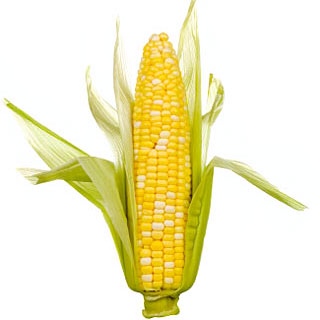If you’ve seen those corn industry commercials that claimed “your body can’t tell the difference between ‘corn sugar’ and ‘cane sugar'” and had to pause the tv from laughing at the idiocy of that statement, good news. The FDA agrees and has denied the corn industry the chance to rebrand high fructose corn syrup (HFCS) as “corn sugar”, on the grounds that it is not, in fact, sugar.
From the New York Times:
“HFCS is an aqueous solution sweetener derived from corn after enzymatic hydrolysis of cornstarch, followed by enzymatic conversion of glucose (dextrose) to fructose,” the letter stated. “Thus, the use of the term ‘sugar’ to describe HFCS, a product that is a syrup, would not accurately identify or describe the basic nature of the food or its characterizing properties.”
In addition, the F.D.A. concluded that the term “corn sugar” has been used to describe the sweetener dextrose and therefore should not be used to describe high-fructose corn syrup. The agency also said the term “corn sugar” could pose a risk to consumers who have been advised to avoid fructose because of a hereditary fructose intolerance or fructose malabsorption.
The corn industry, meanwhile, claims the FDA is denying their request on technicalities. Because, you know, chemistry is just a pesky technicality. Just because cane sugar and beet sugar are naturally occurring, and high fructose corn syrup comes from a laboratory. Just because both are sweet and used in desserts doesn’t mean they are the same, any more than Splenda or Sweet n Low are the same as sugar.
Of course, this is all just a way for the corn refiners to dodge the fact that HFCS has earned a truly terrible reputation as of late and for good reason. There have been studies indicating it is really bad for you, probably worse for you than actual sugar. Princeton University determined rats fed HFCS gained more weight than rats fed sugar water, and rats on a HFCS diet had significantly poorer health than rats not given HFCS. Plus there are all sorts of nasty things associated with HFCS, including one researcher who found mercury in a vat of the stuff. It is super processed, not natural, and most certainly not good for you.
I think the best summation of HFCS, and why it is so terrible, is this conclusion from Dr. Mark Hyman’s excellent post on The Huffington Post:
1. We are consuming HFCS and sugar in pharmacologic quantities never before experienced in human history — 140 pounds a year vs. 20 teaspoons a year 10,000 years ago.
2. High fructose corn syrup is almost always found in very poor quality foods that are nutritionally vacuous and filled with all sorts of other disease-promoting compounds, fats, salt, chemicals and even mercury.
So basically, we not only eat too much sugar, we aren’t even eating real sugar. Scary stuff. But it is great to see the FDA do their jobs right, and not cave to a large industrial presence. Calling HFCS “cane sugar” obfuscates the truth, and it’s not right to pretend it is healthy…no matter how many commercials you shoot in a cornfield!

